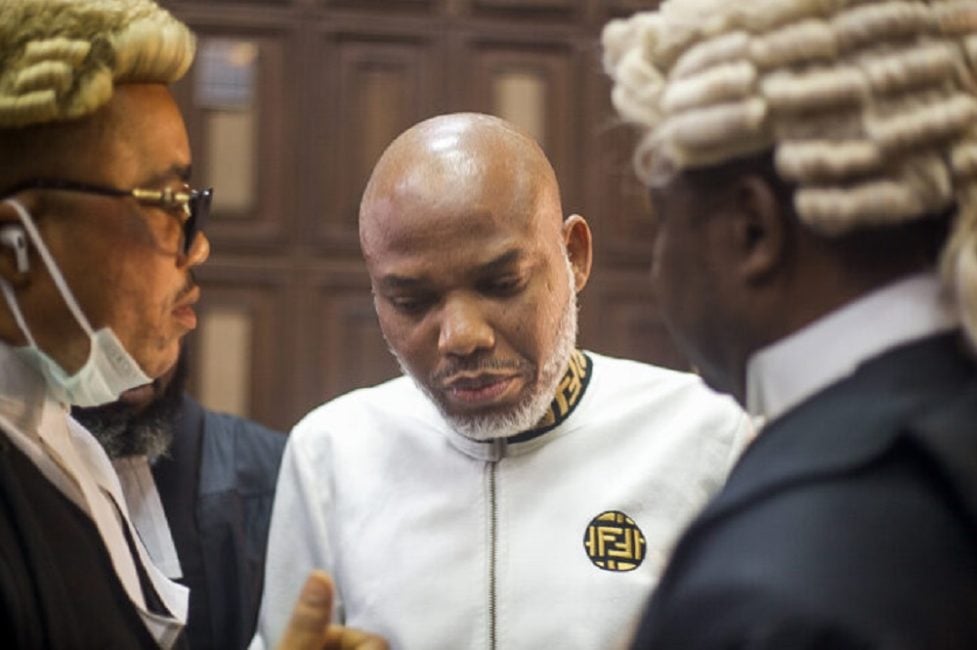The Concerned Igbo Ministers Commission, an inter-religious group, has voiced strong opposition to the continued detention of Mazi Nnamdi Kanu, the leader of the Indigenous People of Biafra (IPOB). In a statement authored by Rev. Tony Uzo Anthony and Apostle Tony Osuji, the organization claims that Kanu’s imprisonment represents a malevolent plot against the Igbo people. They assert that political motivations are behind Kanu’s protracted detention, primarily orchestrated by various South-East governors. The group is calling for solidarity among traditional rulers, religious leaders, and civil society to denounce what they describe as an unjust conspiracy aimed at perpetuating Kanu’s incarceration.
Examining recent developments in Kanu’s legal proceedings, the Commission expressed their alarm at a judge’s refusal to adhere to a Supreme Court ruling regarding Kanu’s case. They argue that his continued detention is not just illegal but highlights a double standard within the justice system, where individuals guilty of more grievous offenses have been released. This situation has prompted concerns about the integrity of the legal proceedings against Kanu, especially given indications from the same presiding judge suggesting that the allegations against him are politically motivated and unfounded. The group questions the rationale behind the harsh treatment meted out to Kanu when evidence suggests that the charges lack substantial grounding.
The ministers further accuse the South-East governors of conspiring to keep Kanu imprisoned until specific political objectives are achieved, implying that his eventual release could be strategically timed to benefit President Bola Ahmed Tinubu in upcoming elections. This suggests that Kanu’s detention is being manipulated as a political tool, raising the stakes in what the Commission perceives as an ongoing power play between regional leaders and the central government. They highlight a troubling alignment of interests that diminishes the urgency of serious conversations around justice and reconciliation in the South-East region, emphasizing the detrimental effects this manipulation is likely to have on public trust.
In their statement, the Commission calls upon members of the Igbo diaspora and the broader international community to influence decision-making in favor of Kanu’s release. They urge expatriates to engage with relevant authorities in Kenya, Britain, and Nigeria, advocating for a fair reevaluation of Kanu’s detention under international scrutiny. By leveraging global networks, the group hopes to galvanize a collective effort toward what they believe is a moral imperative—the liberation of Kanu, whom they characterize as an innocent man unjustly imprisoned. This appeal emphasizes the role of international advocacy in addressing human rights concerns and upholding justice.
The statement further critiques the motivations of the South-East governors, positing that their apparent inaction and lack of empathy towards Kanu—from their position of power—hints at a more significant agenda shaped by political and personal interests. The Commission suggests that these leaders are more invested in maintaining their security votes and political influence than in the well-being of their constituents or the resolution of ongoing instability in the region. They pose a rhetorical challenge to these governors, advocating for peace and suggesting that they should engage directly with Kanu in a bid to explore pathways toward a resolution, rather than perpetuating a cycle of conflict.
Finally, the Concerned Igbo Ministers Commission emphasizes a collective moral responsibility to oppose the injustice surrounding Kanu’s situation. The call to action extends to all segments of society, from traditional rulers to religious leaders and concerned citizens, to condemn what they framework as a malevolent scheme targeting the Igbo people. In framing their appeal in this way, the ministers seek to create a unified front standing against perceived injustices while acknowledging that the consequences of Kanu’s fate will also reflect upon the larger community’s conscience and moral standing. Their statement ultimately encapsulates a profound desire for justice and peace, urging all stakeholders to actively participate in rectifying what they view as an egregious wrong against one of their own.


